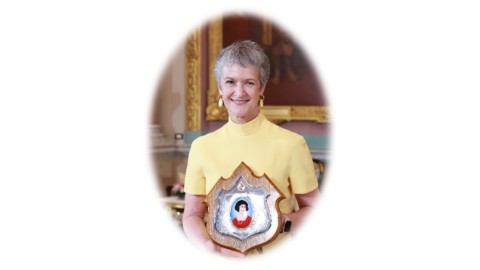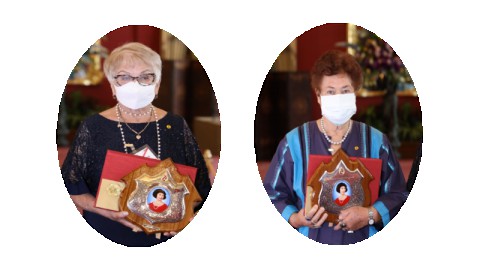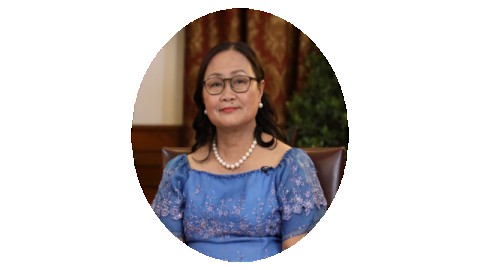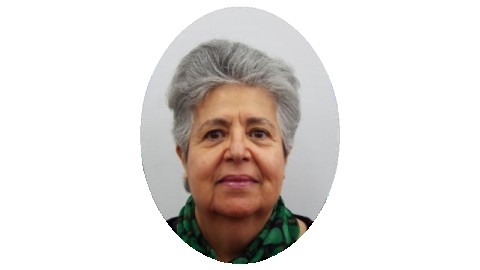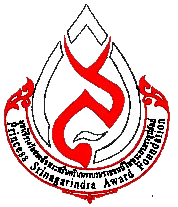
Princess Srinagarindra Award Foundation
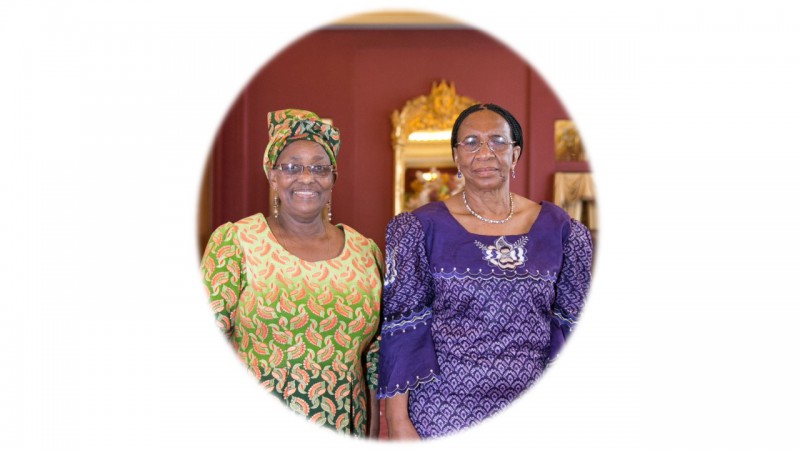
Laureates2015
by advancement of nursing and midwifery education from the level of one year Diploma training in the hospital to Baccalaureate degree in the university and establishment different schools of nursing and midwifery in the country. This result in improving quality and accessibility of care service to people of Tanzania.
In moving nursing education from one year training to Baccalaureate Degree under the university, it was a real struggle for Associate Professor MELLA; first to convince the nursing community that it was the time that Tanzania had its own undergraduate degree program. Second, she was the only professional nurse sitting on an academic board of male doctors who did not believe in nurses having a degree. Third, she encountered barriers at the Ministry of Health. However, with her perseverance, commitment and professionalism, finally, the Minister of Health in Tanzania accepted the proposal for a nursing degree and urged other authorities to support.
The First Bachelor of Science in Nursing curriculum was approved by all relevant bodies at Muhimbili University, College of Health Sciences, and Associate Professor MELLA became the First Dean. To further improve quality of nursing education, Associate Professor MELLA managed to establish four- year project collaboration with the Dalhousie University School of Nursing, Canada and Nursing Education Department at Muhimbili University College of Health Sciences). Through this project, the curriculum for the Bachelor Degree was further refined; seven Nurse Tutors were provided with scholarships to pursue Bachelor and Master’s degrees in Canada (under CIDA) and one Canadian Professor was able to come to Tanzania to strengthen teaching as well as curriculum support at the Faculty of Nursing- Muhimbili for 3 years. Seven other Universities have been established and are offering undergraduate and post graduate degrees for nurses.
After her initial retirement, Associate Professor MELLA became the first Dean at The Faculty of Nursing of the Private University in Tanzania, currently, Hubert Kairuki Memorial University (HKMU). She developed the first Baccalaureate Program in Nursing, and is still working and leading there. As a Dean in her current position, she signed a memorandum of understanding between Global Health Alliance, Western, Western Australia (GHAWA) and Hubert Kairuki Memorial University, to further improve nursing and nursing education and research for the nurses in Tanzania.
Associate Professor MELLA has participated as leadership in the local and international organizations such as; Tanzania National Nurses Association, consultant to Ministry of Health and Social Welfare of Tanzania on different professional issues, East, Central and Southern Africa College of Nursing (ECSACON), International Council of Nurses (ICN), International Council on Women’s Health Issues (ICWHI). She is one of the Reviewers of articles of the Journal of the International Council on Women’s Health Issues “Health Care for Women International” Through her leadership; she has inspired many of her students who have also climbed the professional ladder to leadership positions.
Associate Professor MELLA received Award from Tanzania Nurses’ Association and Tanzania Nurses’ Council for her leadership in development of nursing education in Tanzania and Taylor & Francis Lectureship Award for the work for women.
As described Professor MELLA has made great significant contributions to the improvement of quality of nursing and nursing education in Tanzania. Therefore, the Committee of the Princess Srinagarinda Award Foundation under Royal Patronage, has come to its final resolution to award Associate Professor Pauline Peter MELLA the Princess Srinagarinda Award for the year 2015.
Dr. NDLOVU worked in Zambia for 4 years as the first Chairperson of the Department of Post Basic Nursing, Faculty of Medicine, University of Zambia. During that time the diplomas were the highest qualifications that nurse and midwives could acquire locally. Dr. NDLOVU guided the Department in the development of a curriculum for a Post Basic Nursing Degree which passed through the various processes for approval including the final stage through the University Senate. When she left Zambia to return to Zimbabwe the Bachelor Degree of Nursing curriculum was complete and the Degree commenced 1 year later.
In Zimbabwe, Dr. NDLOVU was firstly employed by the Ministry of Health (MOH), and based at Head Office as the Health Training Coordinator responsible for reviewing all categories of health human resources, identifying deficient areas and making projections to meet the national health needs.
The position of Health Training Coordinator provided Dr. NDLOVU with many opportunities to travel throughout the country and see first-hand the conditions under which people lived as well as their health needs. As Team leader in the determination of health training requirements, the MOH organized one of the most comprehensive national human resources Planning and Projections Workshop that defined very clearly that nurses and midwives constituted the largest and key component of the national health human resources and that the current education and training facilities available for nurses and midwives required to be expanded to increase the size of student intakes, upgraded to improve the quality of teaching and that it was necessary to upgrade to university level. Working closely with the Zimbabwe Nurses’ Association and armed with information accumulated during the years as Health Training Coordinator, Dr NDLOVU able to present to the authorities a strong case for the establishment of the B.Sc. Nursing Degree at the University of Zimbabwe. Then she was appointed as the Senior Lecturer and Chairperson, and established the new Department of Nursing Science within the Faculty of Medicine and changed all The Post Basic degree to generic B.Sc in Nursing Program. Dr. NDLOVU saw the need of qualify faculty members so she worked collaborating with Kellogg Foundation to establish Master’ Degree specialty areas in Maternal Child Health, Community Nursing, Medical Surgical Nursing and Mental Health and Psychiatric Nursing. Over 200 nurses and midwives have completed their Master’ Degree since the inception of the program. Currently the majority of Nurse Educators in the schools of nursing and midwifery are holders of a Master’s Degree and this has upgraded the standard of teaching in the schools of nursing.
Dr. NDLOVU has been an External Examiner for diploma and degree nursing programs in several countries in East, Central and Southern Africa. She also undertaken Short Term Consultancy assignments to review and revise the nursing and midwifery curricula and to integrate HIV and AIDS content in several nursing and midwifery programs in the region. She actively supported the activities of the East, Central and Southern Africa College of Nursing (ECSACON) and was elected Chairperson of the Research Faculty and the President for 4 years. During that period ECSACON completed two major documents-Nursing and Midwifery Regulatory Framework that provide guidelines for defining the scopes of practice for nurses and for midwives and for setting standards and ECSACON Code of Ethics. These guidelines help countries to develop their own country specific guidelines for nursing and midwifery education and practice. Since her retirement from the University of Zimbabwe in December 2004, she has continued to work whit Nursing organizations, universities and the Nurses’ Council of Zimbabwe to contribute to the continuing development and strengthening of nursing and midwifery.
As mentioned previously, Dr. NDLOVU has made a great contribution to the development and advancement of nursing and midwifery services that have impacted positively in the lives of people within Zimbabwe and the East, Central and Southern Africa Region. Therefore, the Committee of the Princess Srinagarinda Award Foundation under its Royal Patronage, came to a final resolution to award Dr. RoseJaele NDLOVU the Princess Srinagarinda Award for the year 2015.
by advancement of nursing and midwifery education from the level of one year Diploma training in the hospital to Baccalaureate degree in the university and establishment different schools of nursing and midwifery in the country. This result in improving quality and accessibility of care service to people of Tanzania.
In moving nursing education from one year training to Baccalaureate Degree under the university, it was a real struggle for Associate Professor MELLA; first to convince the nursing community that it was the time that Tanzania had its own undergraduate degree program. Second, she was the only professional nurse sitting on an academic board of male doctors who did not believe in nurses having a degree. Third, she encountered barriers at the Ministry of Health. However, with her perseverance, commitment and professionalism, finally, the Minister of Health in Tanzania accepted the proposal for a nursing degree and urged other authorities to support.
The First Bachelor of Science in Nursing curriculum was approved by all relevant bodies at Muhimbili University, College of Health Sciences, and Associate Professor MELLA became the First Dean. To further improve quality of nursing education, Associate Professor MELLA managed to establish four- year project collaboration with the Dalhousie University School of Nursing, Canada and Nursing Education Department at Muhimbili University College of Health Sciences). Through this project, the curriculum for the Bachelor Degree was further refined; seven Nurse Tutors were provided with scholarships to pursue Bachelor and Master’s degrees in Canada (under CIDA) and one Canadian Professor was able to come to Tanzania to strengthen teaching as well as curriculum support at the Faculty of Nursing- Muhimbili for 3 years. Seven other Universities have been established and are offering undergraduate and post graduate degrees for nurses.
After her initial retirement, Associate Professor MELLA became the first Dean at The Faculty of Nursing of the Private University in Tanzania, currently, Hubert Kairuki Memorial University (HKMU). She developed the first Baccalaureate Program in Nursing, and is still working and leading there. As a Dean in her current position, she signed a memorandum of understanding between Global Health Alliance, Western, Western Australia (GHAWA) and Hubert Kairuki Memorial University, to further improve nursing and nursing education and research for the nurses in Tanzania.
Associate Professor MELLA has participated as leadership in the local and international organizations such as; Tanzania National Nurses Association, consultant to Ministry of Health and Social Welfare of Tanzania on different professional issues, East, Central and Southern Africa College of Nursing (ECSACON), International Council of Nurses (ICN), International Council on Women’s Health Issues (ICWHI). She is one of the Reviewers of articles of the Journal of the International Council on Women’s Health Issues “Health Care for Women International” Through her leadership; she has inspired many of her students who have also climbed the professional ladder to leadership positions.
Associate Professor MELLA received Award from Tanzania Nurses’ Association and Tanzania Nurses’ Council for her leadership in development of nursing education in Tanzania and Taylor & Francis Lectureship Award for the work for women.
As described Professor MELLA has made great significant contributions to the improvement of quality of nursing and nursing education in Tanzania. Therefore, the Committee of the Princess Srinagarinda Award Foundation under Royal Patronage, has come to its final resolution to award Associate Professor Pauline Peter MELLA the Princess Srinagarinda Award for the year 2015.
Dr. NDLOVU worked in Zambia for 4 years as the first Chairperson of the Department of Post Basic Nursing, Faculty of Medicine, University of Zambia. During that time the diplomas were the highest qualifications that nurse and midwives could acquire locally. Dr. NDLOVU guided the Department in the development of a curriculum for a Post Basic Nursing Degree which passed through the various processes for approval including the final stage through the University Senate. When she left Zambia to return to Zimbabwe the Bachelor Degree of Nursing curriculum was complete and the Degree commenced 1 year later.
In Zimbabwe, Dr. NDLOVU was firstly employed by the Ministry of Health (MOH), and based at Head Office as the Health Training Coordinator responsible for reviewing all categories of health human resources, identifying deficient areas and making projections to meet the national health needs.
The position of Health Training Coordinator provided Dr. NDLOVU with many opportunities to travel throughout the country and see first-hand the conditions under which people lived as well as their health needs. As Team leader in the determination of health training requirements, the MOH organized one of the most comprehensive national human resources Planning and Projections Workshop that defined very clearly that nurses and midwives constituted the largest and key component of the national health human resources and that the current education and training facilities available for nurses and midwives required to be expanded to increase the size of student intakes, upgraded to improve the quality of teaching and that it was necessary to upgrade to university level. Working closely with the Zimbabwe Nurses’ Association and armed with information accumulated during the years as Health Training Coordinator, Dr NDLOVU able to present to the authorities a strong case for the establishment of the B.Sc. Nursing Degree at the University of Zimbabwe. Then she was appointed as the Senior Lecturer and Chairperson, and established the new Department of Nursing Science within the Faculty of Medicine and changed all The Post Basic degree to generic B.Sc in Nursing Program. Dr. NDLOVU saw the need of qualify faculty members so she worked collaborating with Kellogg Foundation to establish Master’ Degree specialty areas in Maternal Child Health, Community Nursing, Medical Surgical Nursing and Mental Health and Psychiatric Nursing. Over 200 nurses and midwives have completed their Master’ Degree since the inception of the program. Currently the majority of Nurse Educators in the schools of nursing and midwifery are holders of a Master’s Degree and this has upgraded the standard of teaching in the schools of nursing.
Dr. NDLOVU has been an External Examiner for diploma and degree nursing programs in several countries in East, Central and Southern Africa. She also undertaken Short Term Consultancy assignments to review and revise the nursing and midwifery curricula and to integrate HIV and AIDS content in several nursing and midwifery programs in the region. She actively supported the activities of the East, Central and Southern Africa College of Nursing (ECSACON) and was elected Chairperson of the Research Faculty and the President for 4 years. During that period ECSACON completed two major documents-Nursing and Midwifery Regulatory Framework that provide guidelines for defining the scopes of practice for nurses and for midwives and for setting standards and ECSACON Code of Ethics. These guidelines help countries to develop their own country specific guidelines for nursing and midwifery education and practice. Since her retirement from the University of Zimbabwe in December 2004, she has continued to work whit Nursing organizations, universities and the Nurses’ Council of Zimbabwe to contribute to the continuing development and strengthening of nursing and midwifery.
As mentioned previously, Dr. NDLOVU has made a great contribution to the development and advancement of nursing and midwifery services that have impacted positively in the lives of people within Zimbabwe and the East, Central and Southern Africa Region. Therefore, the Committee of the Princess Srinagarinda Award Foundation under its Royal Patronage, came to a final resolution to award Dr. RoseJaele NDLOVU the Princess Srinagarinda Award for the year 2015.
